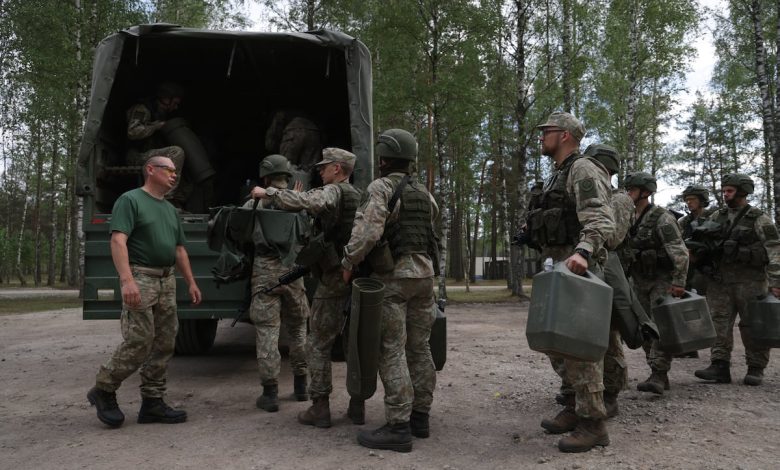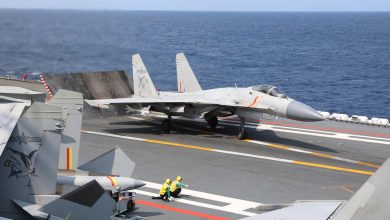Work begins on Germany’s 5,000-strong military base in Lithuania

BERLIN — Construction has commenced on Germany’s first permanent military base abroad, which will be located in Lithuania. Berlin is set to move a brigade to the Baltic country by the end of the decade.
Lithuania and Germany agreed in December 2023 on the plan to station the 4,800 military and 200 civilian German personnel. Now, just over half a year later, construction has started on what will be the largest military installation in Lithuanian history, according to the Ministry of Defense in Vilnius. The plan is to put the brigade in service next year and to reach full operational ability by 2027, according to the Bundeswehr, Germany’s armed forces. In addition to the personnel, it will house 2,000 vehicles, an infographic released by the German Ministry of Defense shows.
While Germany will provide the troops, Lithuania will build the physical infrastructure. It will be located in the Rūdninkai Training Area in the country’s southeast and cost Vilnius €125 million ($139 million).
Politico, citing a German defense ministry speaker, previously reported that Berlin expects the brigade to require a “one-time investment of €6 to 9 billion,” mostly for the purchase of weapons systems, and annual operating expenses of €800 million thereafter.
RELATED
The German military is already present in Lithuania. Berlin has been leading NATO’s enhanced forward presence in the country for six years. According to the Bundeswehr, 800 German military personnel already serve in Lithuania on a rotational basis.
The Bundeswehr has called the decision to deploy the 5,000-strong, combat-ready, heavy maneuver brigade “a beacon project of the watershed era in security policy.”
“Deployment in the long term and on this scale is also new for the German armed forces,” reads the service’s website.
Shortly after Russia’s full-scale invasion of Ukraine, German Chancellor Olaf Scholz had declared a “Zeitenwende” – a fundamentally new era – when it came to security on the European continent and how Germany views its military. German defense spending was boosted significantly, and the country has taken on a more active role internationally. Berlin is the numerically second-largest supporter of Kyiv after only the United States and has worked to position itself as a key NATO partner, especially at the alliance’s eastern flank.
In the past, German policymakers have often been reserved about flexing Germany’s military or even diplomatic muscle on the world stage. Russia’s actions in Ukraine, especially its 2022 invasion, have changed this.
In the other Baltic states, Canada and the U.K. have taken the lead. Two Canadian battalions are expected to arrive in Latvia by 2025, while Britain has vowed to maintain a rapid deployment force to move to the region if needed.
The decision to permanently station German soldiers so close to Russia “brings the Zeitenwende into life,” said German state secretary for defense Nils Hilmer at this week’s ceremony marking the official start of construction work. “We know the value of reliable support and solidarity,” he added.
“Our aim is not to threaten or intimidate,” said Lithuanian Prime Minister Ingrida Šimonytė. But the country must have the confidence to know that if an outside force chose to test its defenses, it would be able to make them regret this decision, she said.
Linus Höller is a Europe correspondent for Defense News. He covers international security and military developments across the continent. Linus holds a degree in journalism, political science and international studies, and is currently pursuing a master’s in nonproliferation and terrorism studies.







